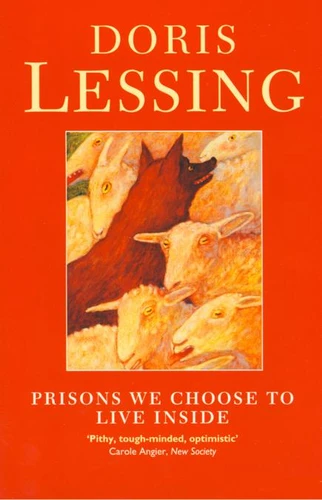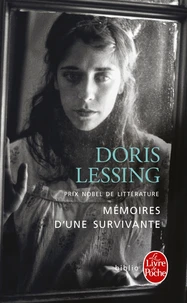Ecrivaine britannique née le 22 octobre 1919 en Iran et morte le 17 novembre 2013 à Londres.
Prisons We Choose to Live Inside
Par :Formats :
Disponible dans votre compte client Decitre ou Furet du Nord dès validation de votre commande. Le format ePub protégé est :
- Compatible avec une lecture sur My Vivlio (smartphone, tablette, ordinateur)
- Compatible avec une lecture sur liseuses Vivlio
- Pour les liseuses autres que Vivlio, vous devez utiliser le logiciel Adobe Digital Edition. Non compatible avec la lecture sur les liseuses Kindle, Remarkable et Sony
- Non compatible avec un achat hors France métropolitaine
 , qui est-ce ?
, qui est-ce ?Notre partenaire de plateforme de lecture numérique où vous retrouverez l'ensemble de vos ebooks gratuitement
Pour en savoir plus sur nos ebooks, consultez notre aide en ligne ici
- Nombre de pages96
- FormatePub
- ISBN978-0-00-754447-9
- EAN9780007544479
- Date de parution28/11/2013
- Protection num.Adobe DRM
- Infos supplémentairesepub
- ÉditeurFlamingo
Résumé
The companion to a series of lectures given by Lessing, winner of the Nobel Prize for Literature, in which she addresses some of the most important questions facing us today.
'This is a time when it is frightening to be alive, when it is hard to think of human beings as rational creatures. Everywhere we look we see brutality, stupidity, until it seems that there is nothing else to be seen but that - a descent into barbarism, everywhere, which we are unable to check.
But I think that while it is true there is a general worsening, it is precisely because things are so frightening we become hypnotized, and do not notice - or if we notice, belittle - equally strong forces on the other side, the forces, in short, of reason, sanity and civilization .' In this published version of a series of perceptive and thought-provoking lectures, Lessing stresses the importance of independent thought, of questioning received opinion and fighting the lure of apathy.
She argues that only if we are free to interrogate authority and disagree that despotism and ignorance can be defeated. We must examine 'ideas, from whatever source they come, to see how they may usefully contribute to our lives and to the societies we live in'.
But I think that while it is true there is a general worsening, it is precisely because things are so frightening we become hypnotized, and do not notice - or if we notice, belittle - equally strong forces on the other side, the forces, in short, of reason, sanity and civilization .' In this published version of a series of perceptive and thought-provoking lectures, Lessing stresses the importance of independent thought, of questioning received opinion and fighting the lure of apathy.
She argues that only if we are free to interrogate authority and disagree that despotism and ignorance can be defeated. We must examine 'ideas, from whatever source they come, to see how they may usefully contribute to our lives and to the societies we live in'.
The companion to a series of lectures given by Lessing, winner of the Nobel Prize for Literature, in which she addresses some of the most important questions facing us today.
'This is a time when it is frightening to be alive, when it is hard to think of human beings as rational creatures. Everywhere we look we see brutality, stupidity, until it seems that there is nothing else to be seen but that - a descent into barbarism, everywhere, which we are unable to check.
But I think that while it is true there is a general worsening, it is precisely because things are so frightening we become hypnotized, and do not notice - or if we notice, belittle - equally strong forces on the other side, the forces, in short, of reason, sanity and civilization .' In this published version of a series of perceptive and thought-provoking lectures, Lessing stresses the importance of independent thought, of questioning received opinion and fighting the lure of apathy.
She argues that only if we are free to interrogate authority and disagree that despotism and ignorance can be defeated. We must examine 'ideas, from whatever source they come, to see how they may usefully contribute to our lives and to the societies we live in'.
But I think that while it is true there is a general worsening, it is precisely because things are so frightening we become hypnotized, and do not notice - or if we notice, belittle - equally strong forces on the other side, the forces, in short, of reason, sanity and civilization .' In this published version of a series of perceptive and thought-provoking lectures, Lessing stresses the importance of independent thought, of questioning received opinion and fighting the lure of apathy.
She argues that only if we are free to interrogate authority and disagree that despotism and ignorance can be defeated. We must examine 'ideas, from whatever source they come, to see how they may usefully contribute to our lives and to the societies we live in'.


















